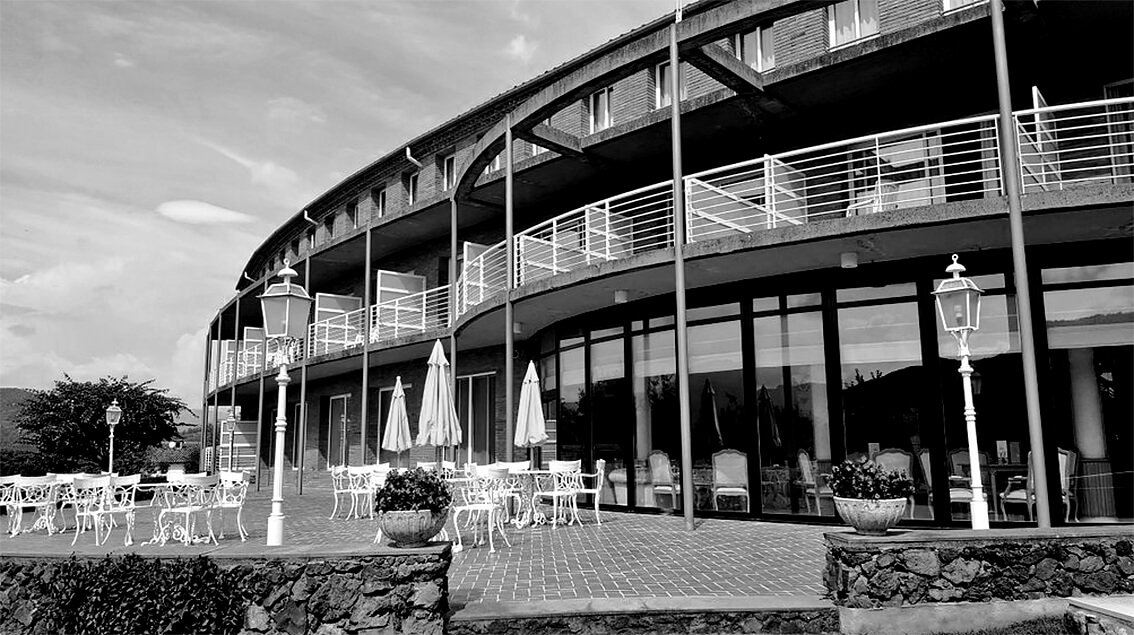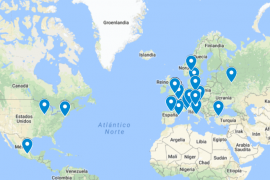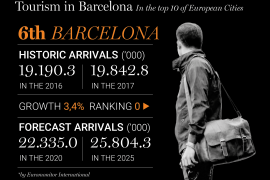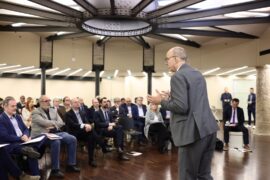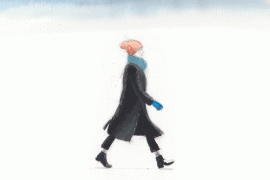Faber is a singular, unique project —the first interdisciplinary residency with an international vocation in Catalonia— which has been under way since September 12, 2016: during these 18 months of operation, they have organised fourteen themed residencies, they have housed over one hundred residents and have held nearly one hundred activities at primary and secondary schools, colleges and cultural centres in the county of La Garrotxa, as well as in cities like Barcelona, Girona and Figueres. Writer Francesc Serés, schooled in fine arts, anthropology and humanities, directs Faber, a project conceived by Olot councillor for culture Josep Berga, and financed by Olot Town Council of and the Generalitat, the government of Catalonia. We talked with Francesc Serés at the Faber facilities located at the Riu Fluvià hotel in the capital of La Garrotxa: “The best part is that it started working very well right from the beginning and the fact it is a hotel is wonderful, you forget about suplies and it’s infinitely cheaper.”
What are Faber’s goals?
We provide a work-space that is ideal for residents to develop their professional projects, encouraging collaboration between professionals from different fields in order to foster synergies between cultures and countries; and the third objective is to make this talent available to the public. Thus, during the cohabitation, the residents also collaborate in activities addressing students, other professionals and the public in general.
It can’t be easy to manage and plan so many projects
The ideal state of things would be to define between 8 and 9 projects a year, but we really have a problem managing. There is excess workload, that prevents us from doing it really well, and that’s what we are learning to deal with now. There are nationalities we have had to limit participation from —like Canada or Finland— and we now prioritise people from more distant countries… from Africa and South America.
Besides planning, is production a big job?
When these people get here, we really have to think carefully about the jobs they have proposed we do, so they have a good impression of our work, and also of the institutions that receive them. Schools ask a lot of us: a Malaysian architect, or mathematicians who will explain how they code… everyone wants to meet these people. Some have studied the life of Saint Brigid because she caused a very strong storm when there was a battle and thus stopped it: that’s peace culture! You have to communicate, you have to network, take pictures, in Catalan and English. And there’s something else that’s most important: you have to dedicate quality time to each of the residents. That’s the secret in a project like this.

Is it a project conceived just for Olot?
There is a cultural context in Olot that favours the project, yes, but Faber is a place for cultural and social return. We did not conceive the residence as a physical space, but rather as a set of ideas, facts and activities. We want it to be a production centre. The connections between residents must yield documents, studies, collections of documentation and a whole lot of tools and ideas. We want the residents’ stay to have a positive impact on students, professionals and citizens. And yes, Faber is perfectly replicable in other places like Vic, La Seu or Reus.
There’s already dance, and now you are preparing psychology…
Léxico is an international collaboration between dance artists who speak different languages to create a new performance together. And we are now working hard on the free workshops on “Educational innovation” to be held in late April. But in the first residency in 2018, on urban planning, there were specialists from Zimbabwe, Baghdad, the United States, Russia, Canada, Italy and Catalonia. After that we had 17 professionals in a residency on feminism, the most ambitious and international one so far. One of the measures of this success comes from the internationalization of those who participate. This success also bears witness to a detail that is not anecdotal: the travel here is paid for by each resident, wherever they are from, and once here Faber only covers the residency.

